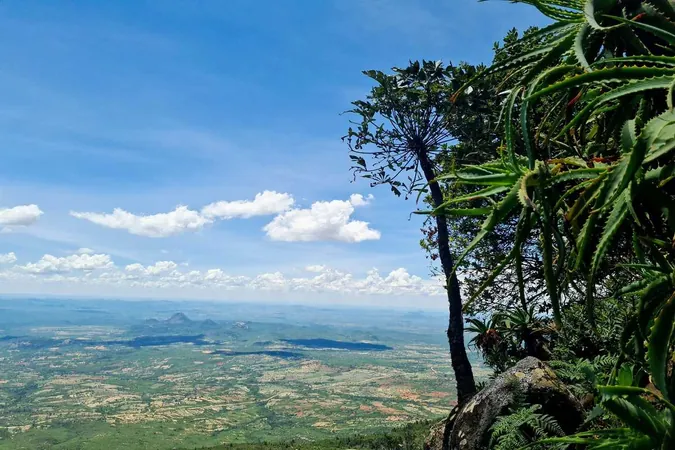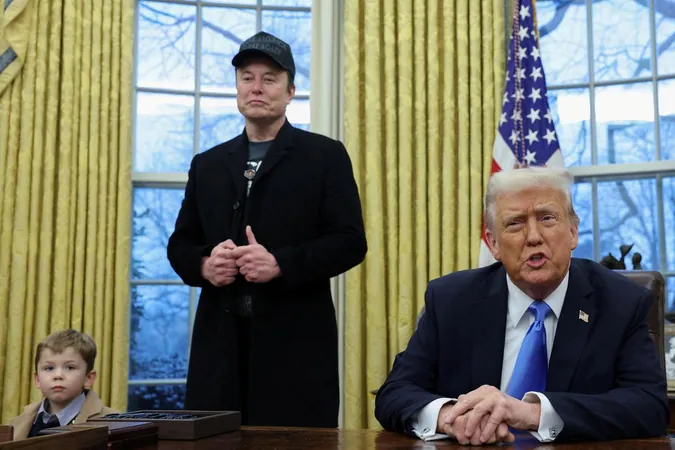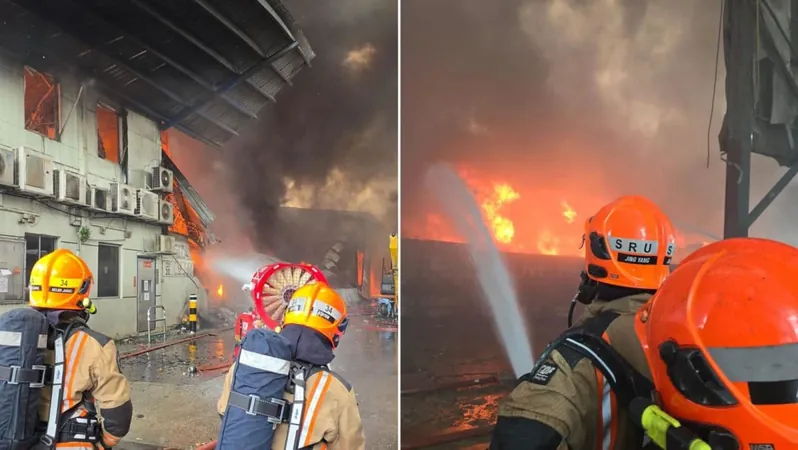
The Unsung Hero: How a Zimbabwean Health Worker is Battling Tradition to Save Children's Lives
2025-01-29
Author: Wei
Introduction
In the picturesque yet challenging remote landscape of Marange, Zimbabwe, a remarkable woman is breaking the barriers of traditional beliefs to ensure that children are protected from preventable diseases. Sibongile Mukwananzi, a dedicated village health worker, embarked on her mission in 2020, armed with a vision for better health in her community.
Confronting Traditional Beliefs
However, her journey soon faced an uphill battle as she encountered the practices of the Apostles of Johane Marange, a religious sect renowned for their strict opposition to modern medicine. In this community, healing is believed to come solely through faith and prayer, and seeking medical help is often seen as a betrayal of that belief.
Mukwananzi, who hails from Mutare, about 92 kilometers away from Marange, was unprepared for the resistance she would meet. “I have faced hostility while advocating for vaccinations,” she recalls. “I've been violently chased away from homes.” Within the sect, mothers often risk expulsion for taking their children to clinics for essential immunizations.
An Innovative Approach to Health
Despite these hurdles, the pressing threat of deadly diseases like polio and measles spurs Mukwananzi into action. She tirelessly encourages local families to seek routine immunizations, acknowledging their fears and navigating the complex social dynamics of the sect.
Embracing her role, Mukwananzi partners with community leaders and health organizations to spread awareness about immunizations and vaccine-preventable diseases. Each day begins with her completing household chores, followed by her journey through the village on a bicycle, armed with medicine and educational pamphlets.
Her efforts include covert vaccination clinics, where sect members are discreetly treated to avoid detection by church leaders. According to a health official in Mutare, some parents discreetly take their children for vaccinations during evening hours when few church members are around. “It is considered a serious offense to be seen seeking treatment,” they say, emphasizing the plan's success in increasing vaccination uptake.
The Toll of Recent Health Crisis
With a staggering increase in reported cases of cholera and a sudden surge in demand for immunizations, Mukwananzi’s services are needed more than ever. Zimbabwe recently faced a cholera epidemic that claimed more than 400 lives and infected over 20,000, sparking concern among health authorities. The annual gathering of nearly 200,000 pilgrims at the nearby Mafararikwa Shrine only intensifies the risk of outbreak, presenting Mukwananzi with even larger challenges as she works to mobilize families to seek vaccinations and treatments.
“For many, it took losing loved ones to understand the importance of vaccines,” she reflects. As more families have suffered the devastating losses of up to 30 members due to cholera, she has managed to secure participation in vaccinations, even among the most resistant church members.
In 2022, Zimbabwe struggled with a measles outbreak that infected over 7,700 people, leading to a mass vaccination campaign for vulnerable children, demonstrating the urgency and importance of Mukwananzi's work. A leader within the Johane Marange sect acknowledged her dedication, stating, “No matter how often you turn her away, she keeps coming back. Her determination to save our community is unwavering.”
A Call for Support
Mukwananzi represents one of over 20,000 village health workers in Zimbabwe, often facing challenges such as vaccine hesitancy and the danger posed by wildlife in rural areas. With plans for the government to absorb village health workers into civil service—thus ensuring better pay and support—there is hope for more robust healthcare within communities.
“It’s not easy to support my family with the current allowances,” she confesses. “Getting paid alongside other health workers would make a world of difference.”
Conclusion
Sibongile Mukwananzi exemplifies resilience amid adversity. Her story serves as a critical reminder of the vital role health workers play in frontline health care, fighting to save lives against tradition, stigma, and crisis, embodying the spirit of tireless dedication. As she continues her mission to educate and heal, one can only hope that her efforts inspire other communities to embrace the life-saving power of modern medicine.




 Brasil (PT)
Brasil (PT)
 Canada (EN)
Canada (EN)
 Chile (ES)
Chile (ES)
 Česko (CS)
Česko (CS)
 대한민국 (KO)
대한민국 (KO)
 España (ES)
España (ES)
 France (FR)
France (FR)
 Hong Kong (EN)
Hong Kong (EN)
 Italia (IT)
Italia (IT)
 日本 (JA)
日本 (JA)
 Magyarország (HU)
Magyarország (HU)
 Norge (NO)
Norge (NO)
 Polska (PL)
Polska (PL)
 Schweiz (DE)
Schweiz (DE)
 Singapore (EN)
Singapore (EN)
 Sverige (SV)
Sverige (SV)
 Suomi (FI)
Suomi (FI)
 Türkiye (TR)
Türkiye (TR)